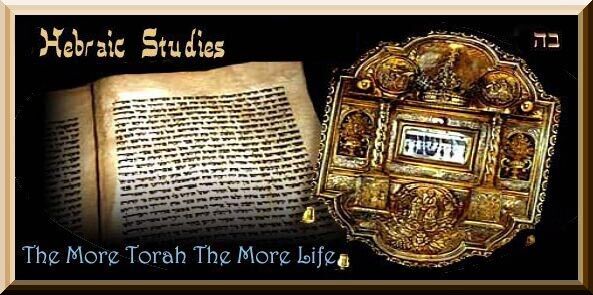Hebraic Studies - Parashat Vayigash
Please Note: Firefox and
some other search engines are not suitable
Use Google Chrome for this page to load perfectly!

Please
do NOT
visit this site on Shabbat or on a
![]() -
Y-H-V-H, which we usually pronounce as “Adonai” or “HaShem”.
-
Y-H-V-H, which we usually pronounce as “Adonai” or “HaShem”.
*“This is My Name forever,
and this is My memorial to all generations.”
Shemot - Exodus 3:15.
Although some minor alterations have been made relating to names and attributes having been corrected.
Please Note: Verse numbers may at times vary in non Jewish Bibles.
Bereshit - Genesis chapters 43:18 to 47:27.
With Rabbi Reuven
Ben-Avraham.
“Hasten ye, and
go up to my father, and say unto him: Thus saith thy son Yoseyf: Elohim hath
made me lord of all
Yoseyf sends them back to their father in
order to bring him and the tribe back to
1. He wanted to exact revenge and so the
thought of throwing his brothers in jail was too tempting to avoid. Or, 2. Yoseyf wanted to test his brothers to see if they had
indeed repented. The second option is of course the explanation tradition
favours. The only way to see if someone has made “Teshuvah shleymah”, a “complete repentance”, is to
test them by the exact same situation. Only if you say no to the same
temptation that before you said yes to, do we know that you have changed.
But rarely do we find ourselves in this same
circumstance. And so how do we know if a person has truly repented and
completely changed?
Judaism fundamentally believes that people can
change. It is a matter of first admitting the wrong. And then asking
forgiveness of those we have wronged. Then we must resolve to change. At some
point we will be tested by the same circumstances. In that moment we will
discover if we have indeed changed. Thus, I fully believe that those who make
errors, no matter how great, but if they were one in faith, and are willing to
return with all their heart and soul that they can genuinely change and be
fully restored as a faithful Jew!
But changing ourselves is in some ways the
easier task. Allowing others to change comes with greater
difficulty. Forgiving others of their wrongs can be the more trying test.
Following Yoseyf’s example is the mightier task.
We must therefore continually remind ourselves
that people can change. And thus we must say to ourselves that nothing is
fated. If I can change then others can also change. Can we forgive and
forget the wrongs done to us? Can you allow for others to
change? Believing that others can change will give us hope in the future.
I believe that repentance is built into our
fabric of creation. Was it placed within us by Elohim at the beginning? It
could well be because the ability for people to change that is how we sustain
the world, for there is no future without change.
But always remember that no matter where you
have been or what you have done wrong, all we have to do is look up and say
“Elohim I have offended You, and I am sorry, forgive me I was wrong
forgive me, I will do everything possible to get back
to where I should be! Omein.”
![]() Elohim, blessed be His Sanctified Name, is the
one who gave us our Life!”
Elohim, blessed be His Sanctified Name, is the
one who gave us our Life!”
![]()
Return to our MAIN PAGE or go to our Main Index


